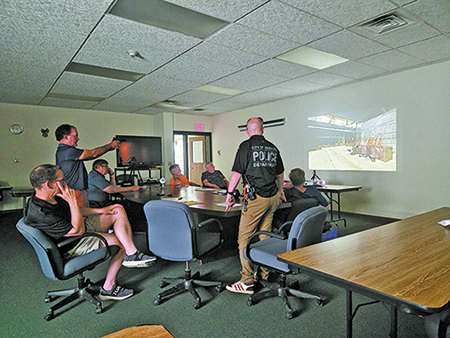Chippewa County sees first human death from EEE virus
The Wisconsin Department of Health Services (DHS) and the Chippewa County Health Department, have announced that laboratory testing has confirmed a case of eastern equine encephalitis (EEE) virus infection in a woman in her 60s, who had been living in Chippewa County. This is the second human case of EEE in state so far this year, and the first resulting in a death.
“We are very sad to report that one of our fellow Wisconsinites has contracted EEE, and has passed away,” said interim state health officer Stephanie Smiley. “This is the second confirmed case of EEE in our state this year, and the seriousness of this infection cannot be overstated. Since mosquitoes continue to be active in Wisconsin, we are urging people to continue to take steps to protect themselves from mosquito bites.”
There have also been nine cases of EEE reported in horses this year, all of which were in the northwestern part of the state, and four of those from Chippewa County. These cases in animals and now in two residents of the community, represent unusually high levels of EEE activity in the state.
The EEE virus is a rare, but potentially fatal, disease, that can affect people of all ages. Symptoms begin anywhere from three to 10 days after the bite of an infected mosquito. Inflammation and swelling of the brain, called encephalitis, is the most dangerous and frequent serious complication.
In Wisconsin, the last human case of EEE was reported in 2017.
EEE can be spread to humans through the bite of an infected mosquito. Mosquitoes acquire EEE virus by feeding on infected birds. The virus is not spread person to person, or directly between animals and humans.
Even though temperatures have cooled off, as long as mosquitoes are active, the risk of EEE and other illnesses spread by mosquitoes can continue through much of the fall. The single best prevention tool continues to be avoiding mosquito bites.
Prevention measures include the following: • Apply an insect repellent with DEET, picaridin, oil of lemon eucalyptus, or IR3535 to exposed skin and clothing.
• Prior to heading outdoors, treat clothing with permethrin; do not apply permethrin directly to skin.
• Consider rescheduling outdoor activities that occur during evening or early morning hours, when mosquitoes are most active.
• Wear long-sleeves, long pants and socks when outdoors to help keep mosquitoes away from skin.
• Make sure window and door screens are intact, and tightly fitted, to prevent mosquitoes from getting into the home.
• Prevent mosquitoes from breeding around the home by removing stagnant water from items around property, such as tin cans, plastic containers, flower pots, discarded tires, roof gutters and downspouts.
• Turn over wheelbarrows, kiddie pools, buckets and small boats, such as canoes and kayaks, when not in use.
• Change the water in bird baths and pet dishes at least every three days.
• Clean and chlorinate swimming pools, outdoor saunas and hot tubs; drain water from pool covers.
• Trim or mow tall grass, weeds and vines, since mosquitoes use these areas to rest during hot daylight hours.



